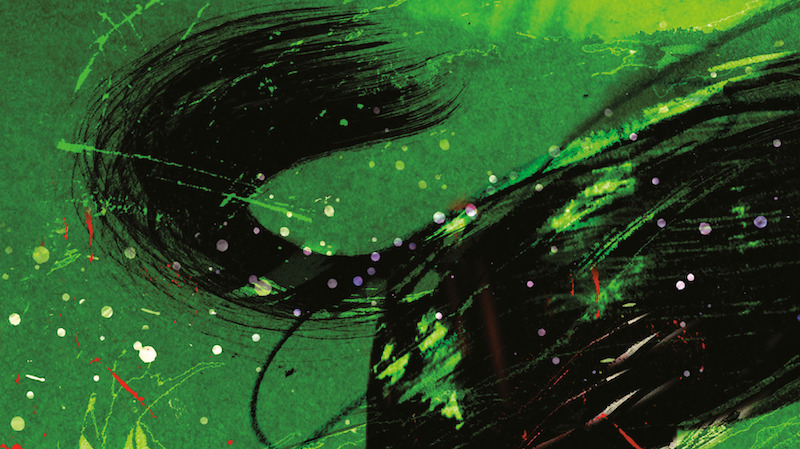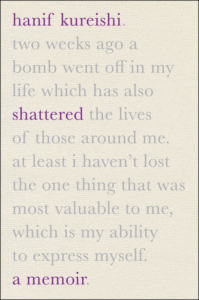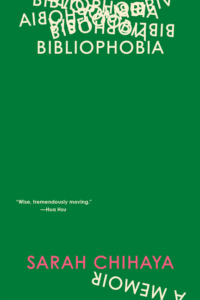
Geraldine Brooks’ Memorial Days, Ali Smith’s Griff, and Hanif Kureishi’s Shattered all feature among the best reviewed books of the week.
1. Gliff by Ali Smith
(Pantheon)
8 Rave • 3 Positive • 3 Mixed • 1 Pan
“A tricksy masterwork that straddles formal lines while reimagining Aldous Huxley’s 1932 novel … Gliff’s language is sparer than in her famous Quartet, yet she’s still throwing everything—art, literature, social justice, tart humor—against atrocities that damage our moral compasses and cripple our lives … Can art and language shield us from our worst instincts? Smith wrestles with this question, veering from swaggering confidence to quiet resignation as she snaps the pieces of her puzzle into place.”
–Hamilton Cain (The Washington Post)
2. The Ghosts of Rome by Joseph O’Connor
(Europa Editions)
7 Rave
“The power of The Ghosts of Rome comes from the dazzling variety of voices employed, the sense of a world constructed in multiple dimensions. The contemporaneous narratives are related in an urgent present tense, with breathless sentences, single-line paragraphs … By crafting a chorus of voices, he ensures that no single narrative dominates, reflecting the messy, multifaceted truths of history—both the way it is lived and how it is constructed in retrospect. What emerges is not just a wartime thriller, though it is that, but a meditation on how we remember, how we resist and how, even in the darkest times, humanity endures.”
-Alex Preston (The New York Times Book Review)
3. Isola by Allegra Goodman
(Dial Press)
2 Rave • 3 Positive
Read an essay by Allegra Goodman here
“I was enthralled, first to last … What may be most wondrous about Isola is its seamlessness. All its elements—style, tone, setting, characters, historical accuracy—render a richly real world, graphic and palpable, from aristocratic estate life to most-wretched human suffering.”
–Joan Frank (The Washington Post)
**
1. Memorial Days by Geraldine Brooks
(Viking)
9 Rave • 2 Positive
“Intensely intimate and candid … Brooks frames her book in two separate narratives; each amplifies the potency of the other … Brooks captures the striking coincidences that marked his death with a poignancy tempered by her keen ability as a storyteller … Unlike others, this memoir, delicately written but without any precious patter, frames itself as a book of days. Overwrought metaphors aside, grief is less of an ocean and more of a series of days … A book that is meant to be read slowly.”
–Lauren LeBlanc (The Los Angeles Times)

2. Shattered by Hanif Kureishi
(Ecco)
5 Rave • 5 Positive
“His memoir is good but modestly so. It contains a great deal of black comedy but its most impressive emotion is regret—for things undone and unsaid earlier in his life … Remorse runs through this memoir’s veins like tracer dye. Kureishi stares hard at himself … We confront the bare wood beneath the bark of Kureishi’s best earlier writing. But he is good and bracing company on the page. His book is never boring. He offers frank lessons in resilience, about blowing the sparks that are still visible, about ringing the bells that still can ring.”
–Dwight Garner (The New York Times)

3. Bibliophobia: A Memoir by Sarah Chihaya
(Random House)
3 Rave • 3 Positive
Read an excerpt from Bibliophobia here
“Stirring and sparkling … Sharp, sad … A representative quip—funny, brutal—in a book that could have easily lapsed into sentimentality or cliché. Bibliophobia tackles topics that lend themselves readily to treacly treatment—suicidal ideation, familial turmoil, heartbreak, eating disorders, cutting, the gray haze of depression—but the prose is too precise for baggy self-indulgence.”
–Becca Rothfeld (The Washington Post)

